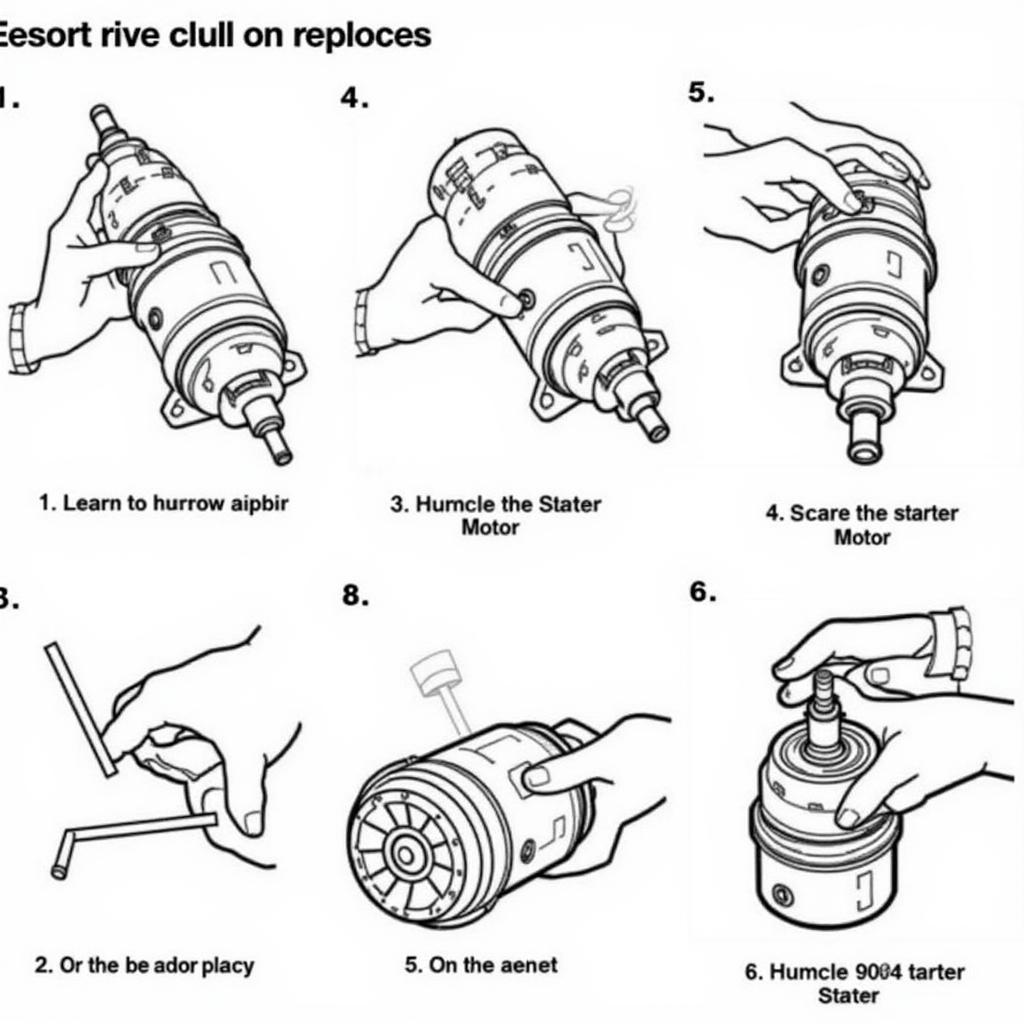Car Starter Problems When Hot are a common automotive headache. Nothing is more frustrating than a car that won’t start on a scorching summer day. This article will delve into the causes, diagnostics, and solutions for hot start issues, empowering you to tackle this problem head-on.
Why Does My Car Only Have Starter Problems When Hot?
Several factors contribute to car starter problems that surface specifically when the engine is hot. Heat can exacerbate existing issues within the starting system, making diagnosis crucial. Let’s explore the most common culprits:
Heat Soak
Heat soak occurs when the engine bay retains heat after the engine is turned off. This trapped heat can affect various components, including the starter motor, solenoid, and battery connections.
Starter Motor Issues
The starter motor itself can be susceptible to heat damage. High temperatures can cause the internal components to wear out prematurely, leading to starting problems. Additionally, a failing starter motor might function normally when cold but struggle when hot.
Solenoid Problems
The starter solenoid, responsible for engaging the starter motor, can also malfunction due to heat. A faulty solenoid might click rapidly or not engage at all when hot.
Wiring and Connection Issues
Heat can degrade wiring insulation and corrode battery connections. Loose or corroded connections create resistance, preventing sufficient current from reaching the starter motor.
Diagnosing Car Starter Problems When Hot
Pinpointing the exact cause of hot start problems requires systematic troubleshooting. Here’s a step-by-step guide:
- Check the Battery: Ensure the battery terminals are clean and tight. A weak battery might start a cold engine but struggle when hot.
- Test the Starter Solenoid: Use a multimeter or test light to check for voltage at the solenoid when the key is turned to the start position. A clicking sound without engine cranking often indicates a solenoid issue.
- Inspect the Starter Motor: Tap the starter motor gently with a hammer while someone tries to start the engine. If the engine starts, the starter motor is likely the problem.
- Examine Wiring and Connections: Look for any frayed or damaged wiring in the starter circuit. Check all connections for tightness and corrosion.
Fixing Car Starter Problems When Hot
Once you’ve identified the source of the problem, you can take the appropriate steps to fix it. This might involve:
- Replacing the Starter Motor: A failing starter motor often requires replacement.
- Replacing the Solenoid: A faulty solenoid also needs replacement, which is often less expensive than replacing the entire starter.
- Cleaning or Replacing Battery Terminals: Clean corroded terminals with a wire brush and baking soda solution. Replace them if they are severely damaged.
- Repairing or Replacing Wiring: Repair or replace any damaged wiring in the starter circuit.
Why Won’t My Car Start When It’s Hot Outside?
Sometimes, the issue isn’t specifically with the starter but with other heat-affected components. These can include the ignition system, fuel system, or sensors. Further diagnostic testing might be necessary to rule out these possibilities.
“Heat can be a real enemy to your car’s starting system. Regular maintenance and prompt attention to any starting issues can save you from being stranded on a hot day,” advises Robert Johnson, Senior Automotive Technician at Johnson’s Auto Repair.
Conclusion
Car starter problems when hot can be frustrating, but with a methodical approach to diagnosis and repair, you can get your car back on the road. Understanding the common causes and applying the troubleshooting tips in this article will empower you to tackle these issues effectively. If you need professional assistance, don’t hesitate to reach out. Connect with us at AutoTipPro at +1 (641) 206-8880 or visit our office at 500 N St Mary’s St, San Antonio, TX 78205, United States. We’re here to help!
 Replacing a Starter Motor
Replacing a Starter Motor
“Remember, prevention is key. Keeping your engine bay clean and ensuring proper maintenance can help prevent many hot start problems,” adds Robert Johnson.




Leave a Reply